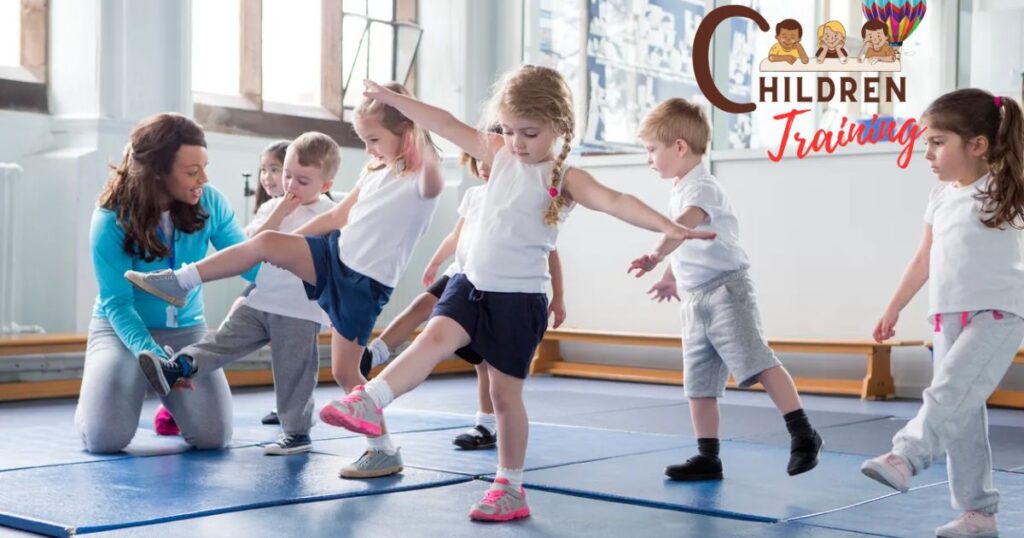The transition from toddlerhood to kindergarten is a significant milestone in a child’s life, one that is filled with excitement, trepidation, and questions for both parents and children. One of the most common concerns parents face during this transition is whether their child must be fully potty trained before entering kindergarten. Potty training is a developmental milestone that varies from child to child, making it a source of anxiety for many parents. In this comprehensive guide, we will explore the concept of potty training, the kindergarten admissions process, and the options available for children who are not fully potty trained. By the end of this article, you will have a clear understanding of whether a child can go to kindergarten without being fully potty trained and the various considerations and options to make this transition as smooth as possible.
Understanding Potty Training

Before we delve into the question of whether a child can attend kindergarten without being fully potty trained, let’s first establish a clear understanding of potty training and the factors that influence this developmental milestone.
What is Potty Training?
Potty training, also known as toilet training, is the process of teaching a child to use the toilet for urination and bowel movements instead of diapers. This milestone typically occurs between the ages of 18 months to 3 years, but the timeline can vary widely from child to child.
Factors Affecting Potty Training
Potty training is influenced by a variety of factors, including:
- Child’s readiness: Every child is unique, and their readiness for potty training may vary. Some children show interest and readiness for potty training earlier than others.
- Parental guidance: The level of parental involvement and support in the potty training process can greatly impact its success.
- Physical development: Physical and physiological factors can affect a child’s ability to control their bladder and bowel movements.
- Environmental factors: The child’s environment, such as access to a potty or toilet, can also play a role in the training process.
Common Potty Training Signs
There are several signs that indicate a child may be ready for potty training, including:
- Showing interest in using the toilet or potty.
- Staying dry for longer periods.
- Communicating when they need to go or have gone.
- Demonstrating the ability to pull down and up their pants.
Kindergarten Admission Requirements
Now that we have a better understanding of potty training, it’s important to explore the admission requirements for kindergarten and how potty training, including whether “Are Golden Retrievers Easy To Potty Train?” is typically considered in this context.
Kindergarten Age Requirements
Kindergarten is usually the first year of formal schooling in many countries. Children typically start kindergarten between the ages of 4 and 6, depending on local regulations. The specific age requirement can vary based on the school district and state or country.
Admission Requirements
Kindergarten admission requirements can include:
- Proof of the child’s age (e.g., birth certificate).
- Immunization records.
- Residence within the school district.
- Medical forms and health checks.
- Parent or guardian identification.
Potty Training and Kindergarten Admission
In most cases, kindergarten admission requirements do not explicitly mention potty training. However, the expectations regarding a child’s potty training status can vary from one school to another. Here are some key points to consider:
- Some schools may require children to be fully potty trained: Certain kindergartens may expect children to be completely potty trained before enrollment. In such cases, children who are not potty trained may face enrollment challenges.
- Other schools may offer support: Some kindergartens are more flexible and understanding, offering support to children who are not fully potty trained.
- Local regulations play a role: Local laws and regulations can influence kindergarten admission policies regarding potty training. It’s important to check with your local school district for specific guidelines.
Benefits of Potty Training Before Kindergarten
Potty training before starting kindergarten can offer several advantages, including:
- Increased independence for the child.
- Less reliance on diapers, which can be cost-saving.
- Fewer disruptions in the classroom due to bathroom breaks.
Options for Children Not Potty Trained
For parents facing the challenge of enrolling a child in kindergarten who is not fully potty trained, there are several options to consider. It’s important to choose the approach that aligns with your child’s readiness and your family’s circumstances.
Delay Kindergarten Enrollment
One option is to delay kindergarten enrollment until your child is fully potty trained. This approach allows your child to develop at their own pace and ensures a more comfortable transition to school.
Pros of delaying kindergarten enrollment:
- Reduced stress and anxiety for both the child and parents.
- A greater likelihood of the child being fully potty trained before starting school.
- A smoother transition to kindergarten.
Cons of delaying kindergarten enrollment:
- Potential for the child to miss out on early social and educational experiences.
- May disrupt parental work schedules or plans.
Seek Supportive Kindergartens
Another option is to seek out kindergartens that are supportive of children who are not fully potty trained. These schools understand that each child develops at their own pace and are willing to work with families to ensure a smooth transition.
Pros of choosing a supportive kindergarten:
- Provides an inclusive and understanding environment for your child.
- Reduces the pressure on both parents and children to meet strict potty training deadlines.
- Allows your child to start kindergarten on time.
Cons of choosing a supportive kindergarten:
- Availability of such kindergartens may vary by location.
- There may be limited slots available, so early enrollment planning is essential.
Utilize Professional Help
If your child is struggling with potty training, seeking professional help from a pediatrician, child psychologist, or potty training consultant can be a beneficial step. These experts can provide guidance, support, and strategies to expedite the potty training process.
Pros of utilizing professional help:
- Specialized guidance tailored to your child’s needs.
- Increased chances of successful and timely potty training.
- Reduces stress and anxiety for parents.
Cons of utilizing professional help:
- May involve additional costs.
- Requires time and effort in scheduling appointments and following recommendations.
Tips for Successful Potty Training
Regardless of your decision regarding kindergarten enrollment, potty training is an essential milestone in your child’s development. Here are some tips to help ensure successful potty training:
Wait for Signs of Readiness
As mentioned earlier, watching for signs of readiness in your child is crucial. Look for cues like interest in using the toilet, staying dry for extended periods, and verbalizing their need to go.
Create a Potty Training Routine
Establish a consistent potty training routine. Schedule regular potty breaks, especially after meals and before bedtime, to help your child become accustomed to the toilet.
Offer Positive Reinforcement
Praise and reward your child for successful potty trips. Positive reinforcement can motivate them to continue using the toilet.
Be Patient
Potty training can be a challenging and frustrating process. Be patient with your child and avoid showing frustration or disappointment.
Use Potty Training Tools
Consider using potty training tools such as training pants, a potty chair, or a step stool to make the process more manageable for your child.
FAQs
Can a child attend kindergarten if they are not potty trained?
It depends on the kindergarten’s policies. Some kindergartens may require full potty training, while others may be more flexible.
What should I do if my child is not potty trained and kindergarten requires it?
You can consider delaying kindergarten enrollment, seeking out supportive kindergartens, or using professional help for potty training.
What age should my child be potty trained before starting kindergarten?
There is no fixed age; it varies from child to child. Some start as early as 18 months, while others may take longer.
Conclusion
It’s important to understand that policies regarding potty training for kindergarten enrollment can vary from one school or district to another. However, many kindergartens today are generally open to accepting children who are not fully potty trained.
Parents should check with their local kindergarten or school district to learn about their specific requirements and guidelines. Some kindergartens may have supportive staff who can assist in the potty training process, while others may have a more flexible approach.
Ultimately, the readiness of a child for kindergarten goes beyond potty training. Social, emotional, and cognitive development are equally crucial. Parents should focus on helping their child develop these skills, as they are important for a successful transition to school.
In cases where a child is not yet potty trained, communication between parents and the school is key. By working together, parents and educators can find solutions that support the child’s needs while ensuring a positive and comfortable kindergarten experience.
Remember, every child develops at their own pace, and there is no one-size-fits-all approach to kindergarten readiness. What matters most is creating a nurturing and supportive environment that allows each child to thrive.










